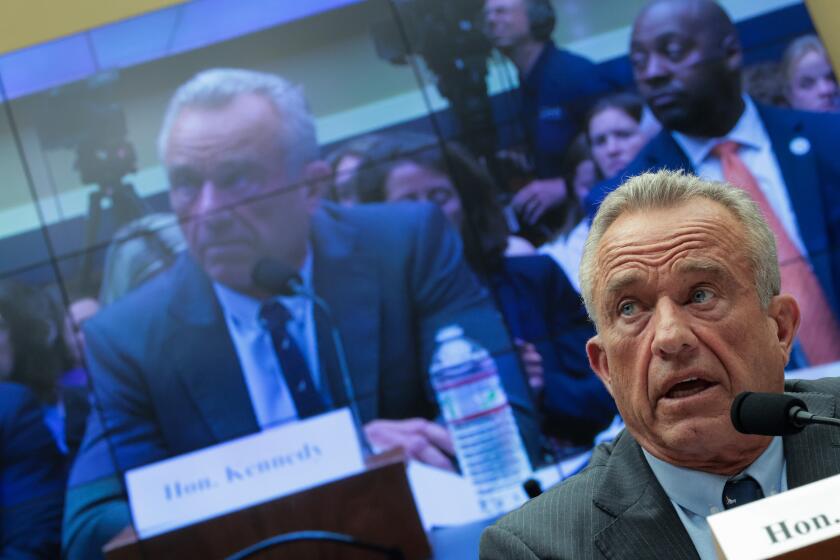How a Supreme Court Victory for Public Health Boosted RFK Jr. and Endangered Free Vaccines

A Landmark Supreme Court Decision and the Rise of a Controversial Figure
The Supreme Court delivered a significant ruling on the final day of its term, marking a major victory for public health advocates. However, this win comes with a twist that has raised concerns among medical professionals and legal experts alike. The decision protected the no-cost preventive services offered to over 150 million Americans with health insurance, including cancer screenings, diabetes tests, statin drugs, and vaccines. Yet, it also granted considerable power to Health and Human Services (HHS) Secretary Robert F. Kennedy Jr., a prominent vaccine skeptic.
Protecting Preventive Care at a Cost
Andrew Pincus, a Washington attorney, described the potential loss as "a terrible result" if the court had ruled against the current system. Insurers could have stopped covering essential preventive services that save lives and reduce healthcare costs. However, the victory now means that Kennedy has the authority to override recommendations from medical experts and potentially remove approved treatments. While his decisions can still be reviewed in court, the implications are far-reaching.
The legal battle has already begun. Last month, Kennedy removed all 17 members of a separate vaccine advisory committee and replaced them with individuals who hold skeptical views about vaccines. These recommendations are crucial because they determine which vaccines must be covered by insurers.
Legal Challenges Emerge
In response, the American Academy of Pediatrics and other medical groups filed a lawsuit against Kennedy for removing the COVID-19 vaccine as a recommended immunization for pregnant women and healthy children. The suit claims that this decision was "arbitrary" and "baseless," violating the Administrative Procedure Act. Dr. Susan J. Kressly, the academy's president, stated that this move was not just sidelining science but an attack on the foundation of family and children’s health protection.
Kennedy also postponed a meeting of the U.S. Preventive Services Task Force, which was central to the court case. Richard Hughes IV, a Washington lawyer and law professor, warned that many chronic disease screenings could face changes. A particular concern is the coverage of PrEP for HIV, a preventive drug that was challenged in a Texas lawsuit that reached the Supreme Court.
A Rare Win for Liberals
The Supreme Court's 6-3 decision was a rare win for liberals. The justices overturned a ruling by Texas judges that would have eliminated the popular benefit included in the Affordable Care Act. This 2012 law required insurers to provide preventive services at no cost if they were deemed highly effective.
However, conservative critics saw a flaw in the Affordable Care Act. They pointed out that the task force of unpaid medical experts was described as "independent" in the law, which led to a five-year legal battle. Steven Hotze, a Texas employer, sued in 2020, objecting on religious grounds to providing HIV prevention drugs, even though none of his employees used them.
The Role of the HHS Secretary
The case eventually reached the Supreme Court under the name Xavier Becerra vs. Braidwood Management. The Biden administration argued that the Texas ruling jeopardized health protections that have been in place for 14 years and millions of Americans currently enjoy. The court agreed to hear the case, and by the time of the oral argument in April, the Trump administration had a new HHS secretary—Robert F. Kennedy Jr.
The six conservative justices believed the Constitution grants the president full executive power to control the government and appoint officials. However, they split on what this meant in this specific case. Justice Brett M. Kavanaugh, writing for the majority, argued that the Preventive Services Task Force members are inferior officers and can be appointed by the HHS secretary. This preserves political accountability, as the secretary can remove the members and review their recommendations before they take effect.
Dissent and Ongoing Concerns
This ruling was a clear win for Kennedy and the Trump administration, making it clear that medical experts are not "independent" and can be replaced by RFK Jr. However, it did not convince the three conservative justices. Justice Clarence Thomas wrote a 37-page dissent, arguing that appointment by the president with Senate confirmation is the rule, and appointment by a department head is an exception that Congress must consciously choose to adopt. He was joined by Justices Samuel A. Alito and Neil M. Gorsuch.
Post a Comment for "How a Supreme Court Victory for Public Health Boosted RFK Jr. and Endangered Free Vaccines"
Post a Comment